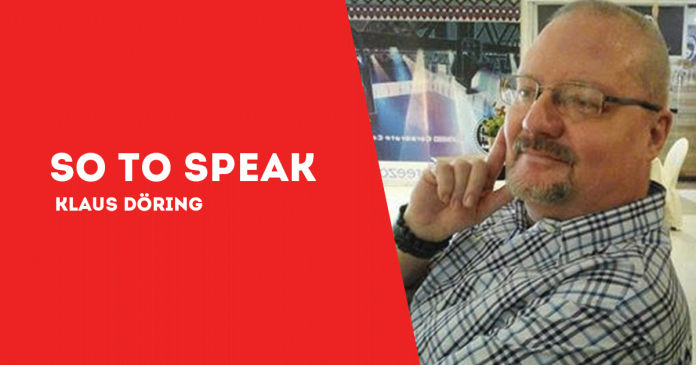
BY KLAUS DÖRING
HOW MANY hours do you usually work daily?
We are all workers whether we work in a plush carpeted office as executives and managers, in a hot and noisy assembly plant as factory hands or as housewives at home.
In short, work-life balance is the state of equilibrium where a person equally prioritizes the demands of one’s career and the demands of one’s personal life. Some of the common reasons that lead to a poor work-life balance include increased responsibilities at work and working longer hours.
Why do we work? Why do we slug five or six days a week (or even more?) for eight or more hours at a stretch?
The church has had quite a lot to say about work and especially the rights of the workers. And when you get through the church jargon, you’ll find statements on minimum wages for workers, needs for leisure and social benefits.
It is the Book of Genesis which tells us that work is God’s gift to human beings. God gave us the will, power and intelligence to “fill the earth and subdue it” and not just talk about seeing the wild beasts, the fruits and grains.
We are given the enormous task of shaping the earth, whether as a machinist in a textile factory, or as a clerk in court. The important message is: Work is for man (and woman) and not man (and woman) for work!
Through work, man develops himself, his personality and his sense of self-worth. It is also through work that man produces goods and services contributing and participating in the development and society.
In the encyclical Laborem Exercens (On Human Work), Pope John Paul II made it clear that there should be just remuneration for the work of an adult who is responsible for a family and this means enough money for the breadwinner to feed, clothe and maintain his partner and children, with provisions “for the security for his future”.
Death by overwork is so prevalent in Japan that they have a word for it: Karoshi. But South Korea is not the only rich country to defy the odds. Japan has a problem with “death by overwork”.
In more specific terms, the word means employees dying either from stress-related ailments (heart attacks, strokes) or the ones who take their own lives because of the pressures of the job.
The average of 1,713 hours worked per year in Japan is not among the highest in the OECD list, but beyond the number, there is the grim reality that the country has no legislation at all stipulating a maximum weekly hours limit and neither overtime limit.
In the 2015-16 financial year, the government registered a record 1,456 karoshi cases. Workers’ rights groups claim that the actual figures could be many times higher due to under-reporting. Japan has a problem with “death by overwork”, expressed not only by statistics but also the fact that the Japanese language has a word for this: karoshi.
According to the International Labor Organization’s (ILO) most recent figures, Asia is a continent where more people work the longest hours: most of the countries (32%) have no universal national limit for maximum weekly working hours and another 29% have high thresholds (60 weekly hours or more). And only 4% of the countries abide by the ILO recommendations and set the international labour standards of a maximum of 48 hours or fewer for the working week.
In the Americas and the Caribbean, 34% of the nations have no universal weekly hours limit, the highest rate amongst regions. One of the countries without a limit is the United States.
But it is in the Middle East where the legal limits are more open for long hours: eight out of 10 countries permit weekly working hours in excess of 60 hours per week.
In Europe, on the other hand, all countries have maximum weekly hours, and only Belgium and Turkey have legal working hours of more than 48 hours.
But it is Africa that shows the greatest number of countries in which more than one of third of the labour force works over 48 hours per week. The rate in Tanzania, for instance, is 60%.
Surveys have also identified cities in terms of average hours. In 2016, Swiss Bank UBS released an analysis of 71 cities that showed Hong Kong with an average of 50.1 weekly working hours, ahead of Mumbai (43.7), Mexico City (43.5), New Delhi (42.6) and Bangkok (42.1).
Mexicans, apart from the longest hours, are also subjected to one of the meanest holiday regimes in the world: their legal minimum paid annual leave is less than 10 days, like in Nigeria, Japan and China, for example, while regional neighbours Brazil offer a minimum of between 20 to 23 days.
It could be worse, though. In India, where there is no universal national limit for maximum working hours, workers do not have a guaranteed minimum amount of annual leave.
Work-life balance is a sense that you’re able to meet your obligations at work and at home while having time to enjoy your hobbies and interests in your personal time. The perfect ratio of work to home looks different to everyone.
Lastly, let’s find out where your work-life-balance is.
***
Email:doringklaus@gmail.com or follow me in Facebook, LinkedIn or Twitter or visit www.germanexpatinthephilippines.blogspot.com or www.klausdoringsclassicalmusic.blogspot.com./PN



